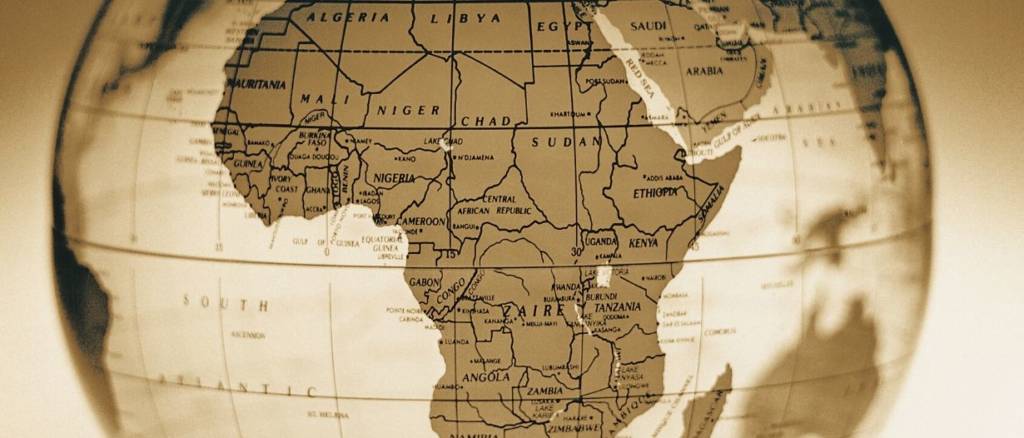Women in Trade – Consultancy
Deborah Elms, Asian Trade Centre
Lungi Mchunu, Consultant, ITPP
Dr Elitsa Garnizova, London School of Economics
Keri Leicher, Castor Vali
Anne Maria Cronin, Quarter Penny Consulting
Sponsored by

Deborah Elms, Asian Trade Centre

Is now an exciting time to be in trade? Why?
The pandemic highlighted the flaws in trade finance but it has equally given companies and financiers an opportunity to pause and reassess risk points, operational risk management strategies. This is a great opportunity to review traditional trade finance products and diversify portfolios which will drive innovations in our offerings
On International Women’s Day, what is the most important message you want to send out to young women thinking about their careers?
You are limitless! It may take time to find your niche and that is okay, make sure it is aligned with your goals and values. You will encounter challenges and stay true to yourself and your vision.
Deborah spoke to TFG recently, discussing the ‘China Plus One’ Strategy – Best of Both Worlds?
Lungi Mchunu, Consultant, ITPP

Is now an exciting time to be in trade? Why?
The pandemic highlighted the flaws in trade finance but it has equally given companies and financiers an opportunity to pause and reassess risk points, operational risk management strategies. This is a great opportunity to review traditional trade finance products and diversify portfolios which will drive innovations in our offerings.
Do you find that there is a gender gap at the top in trade?
Yes, definitely. In my 10+ years in trade finance 80% of middle management were women but less than three have advanced to EXCO. This is rather disturbing and sad to be quite honest.
Promotional Asset (e.g. podcast)
Dr Elitsa Garnizova, London School of Economics

Is now an exciting time to be in trade? Why
I have been working in trade for more than 10 years and at the time it did not seem to attract a lot of debate in the public, especially not on Twitter. Ever since, its salience has moved in waves – in Europe with the negotiations of the Transatlantic Trade and Investment Partnership and then the decision of the UK to withdraw from the EU; in the U.S. with the election of Donald Trump and his fascination with tariffs; in the world, with the global financial crisis and most recently the pandemic.
Trade is an essential element of the wider economic and foreign policy of every country and policy makers have to engage with numerous stakeholders and make trade-offs between various economic, sectoral and societal interests. Businesses also face an intricate web of agreements, domestic regulations, and regional and global standards.
I get very excited from working on the intersection of trade and regulation, trade and human rights, and trade and other social and environmental aspects, as well as raising awareness on trade agreements. It is very motivating to drive thinking on these issues and create approaches to reduce complexity in the world of trade.
What things do you like most about your job?
As the Director of the Trade Policy Hub @LSEConsulting, I drive our business development, research and management of our projects as well as identifying new areas, where TPH can contribute to the work of policy makers and businesses. Since we are part of the London School of Economics (@LSEnews), on a daily basis my work combines pitching for business, writing a research note, conducting interviews, teaching students and discussions with other trade policy experts.
My work truly combines the academic, policy and consulting worlds into one and that means that every day and every project we do brings something different. I am constantly striving to strengthen the approaches we use to deliver consulting advice and that also requires developing new toolkits that can help businesses and governments. In turn that means that I have to keep engaging with the latest research and one of the best parts of my role – expanding our network of trade policy professionals, who work with us.
TFG heard from Dr Elitsa Garnizova, Senior Project Manager and Researcher, London School of Economics on the current updates and what we can expect in this UK-EU-US economic relationship.
Keri Leicher, Castor Vali

Why did you choose a career in this sector?
I have always had a strong interest in international affairs, with a desire to understand the how and why behind political and security developments – particularly across the African continent which has a rich and diverse recent history. Choosing a career in country risk has allowed me to take this understanding from the theoretical to the practical as I work with clients to help them navigate local and regional developments, trends, and at times, major life-threatening crises, to both manage the risks but also to harness the opportunities.
Given the ever-changing nature of political and security environments not just within Africa but globally, no two projects are ever the same which has ensured that my career has been equally exciting and challenging. In addition, by helping such a diverse set of clients – from banks working on major infrastructure projects in Ethiopia to renewable energy firms looking to start new solar projects in outlying areas of Burkina Faso to NGOs delivering humanitarian assistance in central Africa – I am able to work across the full spectrum of ‘doing business in Africa’. This has been extremely rewarding.
On International Women’s Day, what is the most important message you want to send out to young women thinking about their careers?
I would encourage all young people to think more creatively about their careers, to pursue multiple interests, to read much more widely, and to remain open to acquiring new experiences and meeting new people outside of their comfort zones or traditional work trajectories/degrees.
The world of work is rapidly changing – just as we have seen in the last year – and remaining flexible and being able to adapt is an acquired skill in itself. While this may seem daunting and beyond what conventional wisdom or even what your parents may advise, broadening your horizons today opens up more possibilities over the long-term as you start to take your first steps in your careers. Be bold and brave. Dare to be even a little different!
To women, I would advise them to take a seat at the table. Let your own voice be heard – not the watered-down version of yourself you use to adjust to male corporate environments. You have incredible value to add in every situation just as you are.
TFG heard from Keri Leicher (in her previous role), on the economic, political and health crisis in Africa caused by Covid-19 pandemic. Keri spoke of Africa’s high level of debt and silent attacks affecting the continent’s security.

Anne Maria Cronin, Quarter Penny Consulting Ltd

How do we attract more women into careers in trade finance?
More training as well as mentoring from the trade industry specialists to attract more women and young people in general to trade finance. Trade and trade finance should be included in the curriculum within colleges and universities to show women that there are opportunities for them as well as men.
What’s the most important piece of advice you’d give to a woman thinking of starting a career in trade finance?
Go for it! Don’t let anyone tell you that: “trade finance is not a woman’s job”. Trade finance is an extremely exciting space especially right now we are in the middle of the pandemic crisis. There are so many opportunities for talented, passionate, people to get involved in trade finance.
 Australia
Australia Hong Kong
Hong Kong Japan
Japan Singapore
Singapore United Arab Emirates
United Arab Emirates United States
United States France
France Germany
Germany Ireland
Ireland Netherlands
Netherlands United Kingdom
United Kingdom


Comments are closed.